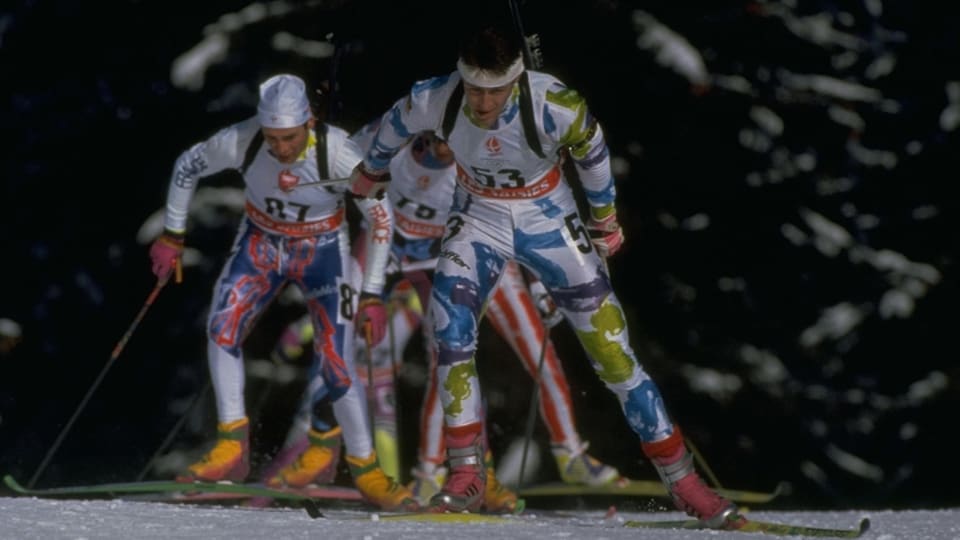
Kirchner was hardly an unknown before the Games. Although he was only 21 years old, he was already a double world champion and travelled to France as one of the favourites.
His closes challenger turned out to be another young German biathlete who was making his first appearance at the Games – Ricco Gross. The two team-mates knew each other well, and also knew that neither had been in the best of form in recent months. But neither was sure whether the unique pressure of performing on the Olympic stage would inspire or intimidate them.
Both athletes had been in poor form with the rifle, which was crucial since each miss would mean having to complete a painful and time-consuming 150m penalty loop. Yet in the 10km event, Kirchner's shooting was superb – he missed no targets at all, while Gross missed one. That, in the end, proved significant as Kirchner crossed the finishing line 16 seconds ahead of his team-mate.
Kirchner's shooting problems did resurface in the 20km. He was the second quickest skier, but his three misses added an extra three minutes to his time and cost him the chance of victory. The gold went instead to Yevgeny Redkin, a slower skier but a more accurate shot – with Kirchner picking up the silver.
His final tilt at a medal came in the 7.5km relay, in which the Germans were heavily tipped to do well. They suffered a huge early setback when Gross collided with another skier and lost a lot of time, finishing only 12
quickest; but then Kirchner produced a very special third leg to haul his team up from fifth place and into the lead, where they remained until the finish, handing the youngster his second gold of the Games.
